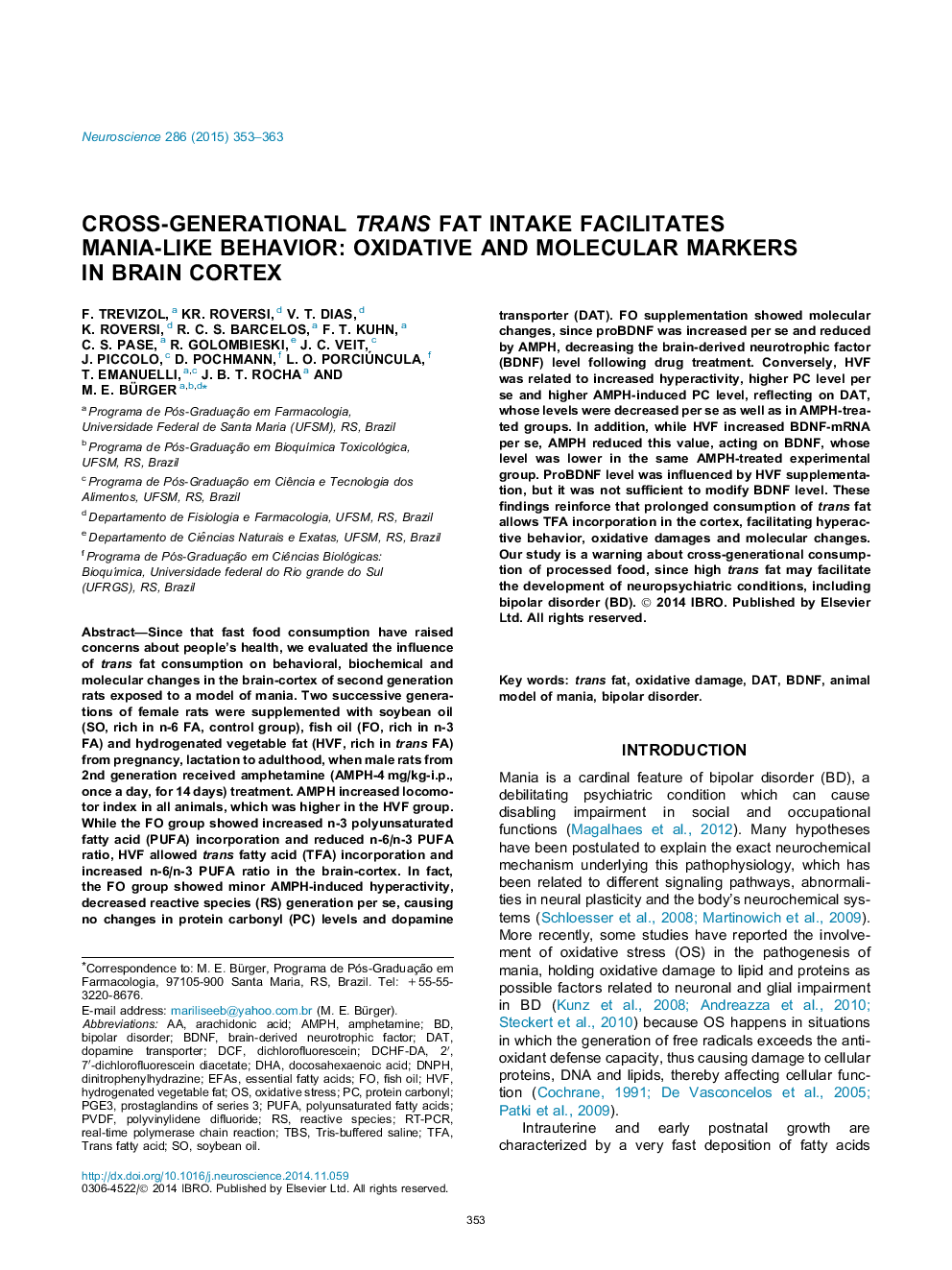| کد مقاله | کد نشریه | سال انتشار | مقاله انگلیسی | نسخه تمام متن |
|---|---|---|---|---|
| 6273090 | 1614790 | 2015 | 11 صفحه PDF | دانلود رایگان |
- Rats were supplemented with trans fat (TF) during two sequential generations.
- TF supplementation facilitated mania-behavior induced by amphetamine (AMPH) in rats.
- Trans fatty acid (TFA) was incorporated in the brain cortex causing oxidative damages.
- Dopamine transporter immune content and BDNF-mRNA levels were reduced by TF after AMPH.
- Processed foods contribute to develop neuropsychiatric conditions such as mania.
Since that fast food consumption have raised concerns about people's health, we evaluated the influence of trans fat consumption on behavioral, biochemical and molecular changes in the brain-cortex of second generation rats exposed to a model of mania. Two successive generations of female rats were supplemented with soybean oil (SO, rich in n-6 FA, control group), fish oil (FO, rich in n-3 FA) and hydrogenated vegetable fat (HVF, rich in trans FA) from pregnancy, lactation to adulthood, when male rats from 2nd generation received amphetamine (AMPH-4Â mg/kg-i.p., once a day, for 14Â days) treatment. AMPH increased locomotor index in all animals, which was higher in the HVF group. While the FO group showed increased n-3 polyunsaturated fatty acid (PUFA) incorporation and reduced n-6/n-3 PUFA ratio, HVF allowed trans fatty acid (TFA) incorporation and increased n-6/n-3 PUFA ratio in the brain-cortex. In fact, the FO group showed minor AMPH-induced hyperactivity, decreased reactive species (RS) generation per se, causing no changes in protein carbonyl (PC) levels and dopamine transporter (DAT). FO supplementation showed molecular changes, since proBDNF was increased per se and reduced by AMPH, decreasing the brain-derived neurotrophic factor (BDNF) level following drug treatment. Conversely, HVF was related to increased hyperactivity, higher PC level per se and higher AMPH-induced PC level, reflecting on DAT, whose levels were decreased per se as well as in AMPH-treated groups. In addition, while HVF increased BDNF-mRNA per se, AMPH reduced this value, acting on BDNF, whose level was lower in the same AMPH-treated experimental group. ProBDNF level was influenced by HVF supplementation, but it was not sufficient to modify BDNF level. These findings reinforce that prolonged consumption of trans fat allows TFA incorporation in the cortex, facilitating hyperactive behavior, oxidative damages and molecular changes. Our study is a warning about cross-generational consumption of processed food, since high trans fat may facilitate the development of neuropsychiatric conditions, including bipolar disorder (BD).
Journal: Neuroscience - Volume 286, 12 February 2015, Pages 353-363
